READY TO GET STARTED?
REQUEST A FREE ESTIMATE
Fill out the form below or call (888) 466-7849 for a free, no-obligation estimate.
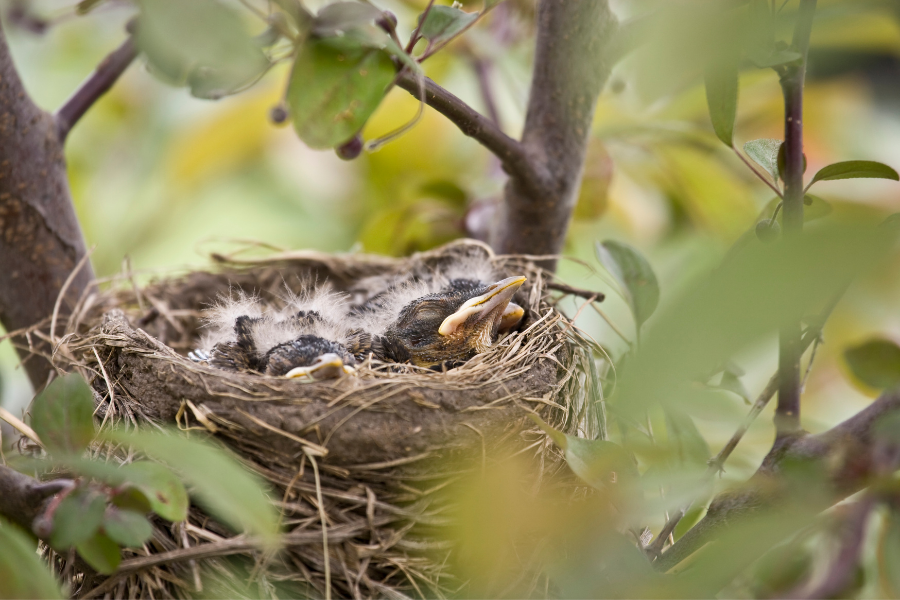
Birds are a vital part of Georgia’s ecosystem—but when they decide to build their nests in your vents, gutters, rooflines, or even inside your home, they can quickly become a nuisance. Bird nest removal isn’t as simple as grabbing a ladder and removing it yourself. In fact, depending on the bird species and the time of year, removing a nest may be illegal.
So, when is bird nest removal appropriate? And more importantly—when is it legal? Let’s take a closer look at when and how bird control should be done safely and within the law.
The short answer? Sometimes—but not always. Before you take any action, it’s crucial to determine:
Is the nest active? (Are there eggs or chicks inside?)
What type of bird built it?
Where is the nest located?
If the nest is inactive (no eggs or young), it’s typically safe to remove, but even then, it’s best to proceed cautiously. Many birds are federally protected, including common backyard birds like robins, blue jays, and swallows. Under the Migratory Bird Treaty Act (MBTA), it is illegal to destroy or disturb active nests of protected species without a permit.
Removing an active nest without authorization could result in serious penalties—even if the birds are causing issues.
The MBTA protects over 1,000 bird species, making it illegal to remove, relocate, or destroy their nests while they’re actively nesting (eggs or young present). This law helps preserve bird populations by ensuring birds can safely raise their young.
Even if a bird seems like a nuisance—leaving droppings on your porch, blocking vents, or squawking loudly—they still enjoy legal protections while nesting. That’s why bird pest control must be handled responsibly and often with professional help.
There are some situations where bird nest removal is not only appropriate, but necessary—especially when the nest:
Blocks ventilation or exhaust systems
Is located in or near flammable materials
Attracts insects or mold growth from droppings
Poses a health hazard due to excessive bird droppings
Is constructed in an unsafe location for humans or birds
Before nesting season (Late fall through winter in Georgia)
After the birds have left (Look for signs of activity like chirping, visible chicks, or parents coming and going)
If the nest is abandoned (Confirm there’s no activity over several days)
Important Tip: Always confirm the nest is inactive before removing it. If you’re unsure, contact a professional for help.
Relocating a bird’s nest is tricky—and usually not recommended without expert assistance. Moving a nest even a few feet can cause parent birds to abandon it entirely. And, again, if the bird species is protected, relocating the nest without a permit is considered illegal.
Instead of relocating, consider installing deterrents or barriers once the birds leave to discourage future nesting in that location.
The cost of professional bird nest removal near you varies depending on a few factors:
The location of the nest (Is it on the roof? Inside a wall vent?)
Whether the nest is active or inactive
The number of nests and types of birds involved
If cleanup and sanitation is needed (due to droppings or nesting materials)
It may seem harmless to let a bird build its nest near your home, but bird nests can create a number of problems:
Health hazards: Bird droppings can carry bacteria, fungi, and parasites harmful to humans.
Structural damage: Nesting materials can block vents and gutters, increasing moisture and fire risks.
Insect infestations: Nests attract mites, lice, and even beetles.
Recurring issues: Birds often return to the same nesting spot year after year.
If you’re seeing nesting activity in or around your home, the best approach is to call a bird control professional. They’ll identify the bird species, check for activity, and help you develop a plan for safe removal and future prevention.
Once the nesting season ends and it’s safe to remove old nests, take the time to bird-proof your home:
Install vent covers to block common entry points.
Use bird spikes or netting in problem areas like ledges and rooflines.
Keep outdoor lights and porches clean of droppings and nesting materials.
Trim back tree branches near windows and eaves.
Avoid leaving out open containers of food or water that attract birds.
Proactive bird pest control is the best long-term solution to avoid future nesting issues.
Birds are beautiful—but when they choose your home as their nesting spot, they can quickly become pests. Because many bird species are legally protected, it’s critical to understand when bird nest removal is allowed—and when it could get you into trouble.
When in doubt, don’t DIY it. Reach out to a licensed bird control company that can help you safely remove and deter problem birds without breaking the law.
Looking for bird nest removal near you in Georgia? Our trained professionals are here to help you protect your home and keep birds safely where they belong—in nature, not your vents.
Contact us today for safe, legal, and effective bird pest control services in Georgia!
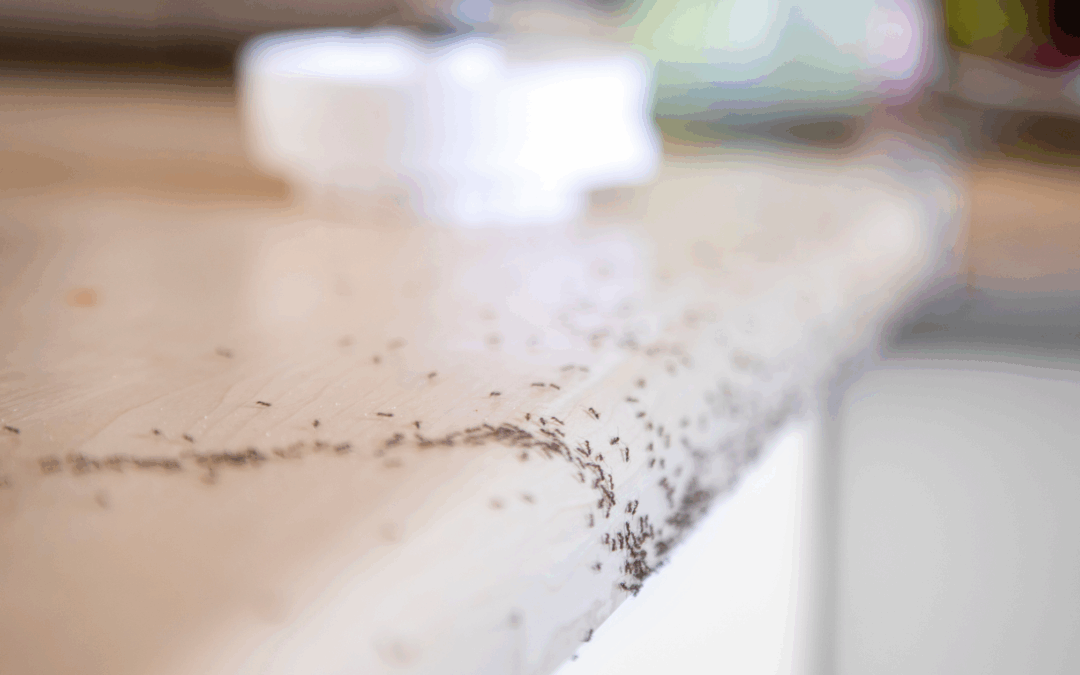
Finding ants in your bathroom can be a frustrating surprise, whether it’s a lone scout or an entire trail marching across your sink. These persistent pests are often drawn to damp spaces and sugary or soapy residues, making your bathroom a prime target. Luckily, you don’t need harsh chemicals to get rid of ants. With eco-friendly methods, you can tackle the problem swiftly and effectively while causing no harm. Here’s how to eliminate ants in your Anniston bathroom the green way, while keeping your family and the environment in mind.
Understanding why ants are in your bathroom is the first step to getting rid of them. Ants are often searching for two things in this space:
Once they’ve found what they’re looking for, ants leave behind a chemical trail for others to follow, expanding the infestation. Addressing these attractants is key to stopping their march.
Ants are tiny and highly flexible, which means they can enter through the smallest cracks or openings. Seal these gaps to prevent their access.
Blocking their pathways sends a clear message that your bathroom is off-limits.
Skip the chemical sprays and opt for natural solutions that are effective yet healthier or your family and pets.
Other natural deterrents like citrus peels, bay leaves, or coffee grounds can also be placed near entry points to keep ants away.
Cleanliness is crucial in making your bathroom less inviting to ants.
By removing their food and water sources, you’ll make it harder for ants to stick around.
Preventing ants from returning is just as important as getting rid of the current infestation. Here’s how you can maintain an ant-free bathroom:
Taking these steps makes your bathroom less appealing to ants and other pests over the long term.
Getting rid of ants in your Anniston bathroom doesn’t have to mean using harmful pesticides. With a few simple changes, like sealing entry points, using natural repellents, and keeping things dry and clean, you can tackle the problem in an environmentally friendly way. Plus, with preventative measures in place, you’ll keep them out for good.
Eco-friendly pest control provided by a pest control company near you will keep your home and the planet, ensuring a healthier, greener future for all!
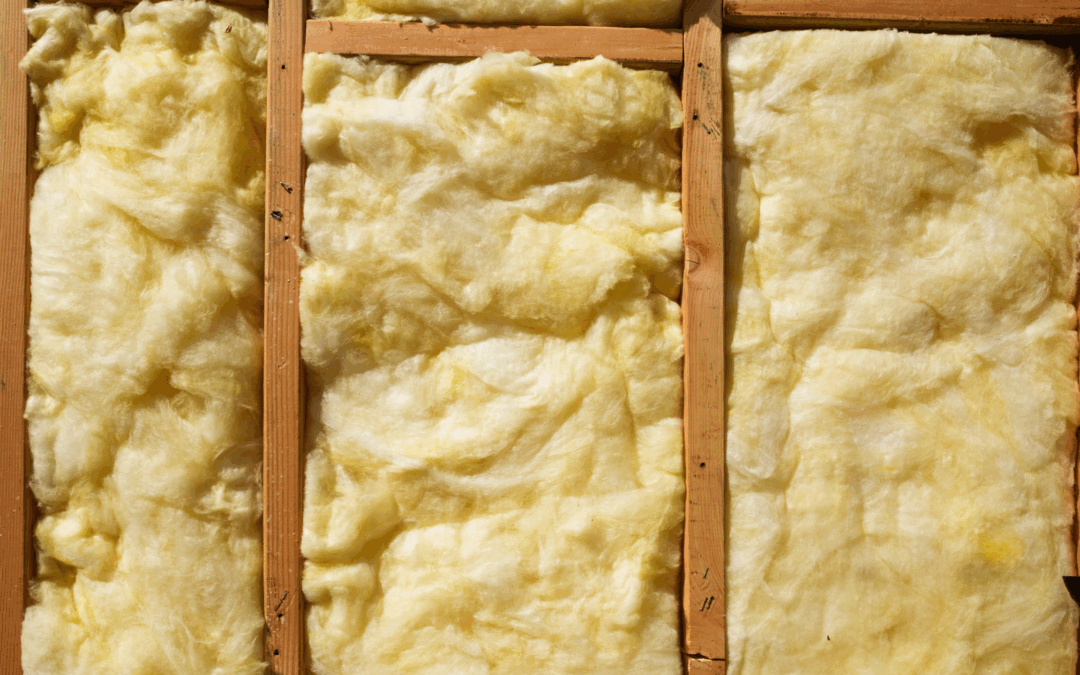
If you’ve been hearing bumps, scratches, or rustling noises coming from your attic, you’re not alone. Many South Carolina homeowners face unwelcome attic tenants, from rodents to insects, and even insulation issues that encourage these pests to stick around. To protect your home, it’s essential to know what’s causing the commotion and how to address it. Below, we’ll cover five common attic pests and how insulation problems could be making your attic the perfect place for these critters to settle.
Mice and rats are some of the most common attic invaders. These small pests can squeeze through tiny gaps in your roof or walls and quickly turn your attic into a nesting site. Once inside, they chew on wires, gnaw on wooden beams, and leave droppings that create health hazards.
Squirrels may seem cute in your backyard, but they’re far less adorable when they invade your attic. They typically enter through roof vents or damaged soffits and quickly set up nests. Left unchecked, their strong chewing habits can damage beams, ducts, and wiring.
South Carolina’s warm climate can attract bats looking for a space to roost, and your attic often fits the bill. While bats play an important role in controlling insect populations, their droppings, called guano, can pose serious health risks.
Attics are often home to a variety of insect pests, including wasps, bees, and cockroaches. Wasps and bees build nests in eaves, while cockroaches prefer warm, dark spaces near food sources. Left unchecked, these pests can lead to infestations that spread through the home.
Beyond pests, poor insulation can contribute to your attic issues. Damaged attic insulation creates a warm, inviting nest for various pests while contributing to higher energy bills and reduced home comfort.
Tackling pests and insulation issues in your attic takes a combination of prevention and professional support. Here are some tips to protect your home long-term:
By addressing these issues proactively, you can avoid costly repairs and keep your home protected, comfortable, and pest-free.
The noises in your attic may seem alarming, but they’re often a telltale sign of common attic pests or insulation problems. Whether it’s rodents, squirrels, bats, insects, or weak insulation creating the perfect habitat, taking preventive steps early on is key to maintaining a healthy home.

When spring arrives in Carrollton, Georgia, it’s hard not to feel excited about the sunny days, blooming flowers, and warmer weather. But as your family starts to enjoy the outdoors, some unwelcome visitors might tag along too. Mosquitoes, ants, and termites thrive in the warmer months and can quickly turn both your backyard and home into their playground. Thankfully, with a little know-how and the right plan, you can keep your home pest-free and healthy for everyone in the family, including pets! Here are some warm-weather pests to watch out for and tips to help you take action against them this spring.
Mosquitoes are a classic spring and summer annoyance. They seem to appear the moment you step outside, whether you’re hosting a barbecue or just unwinding on the porch. Carrollton’s warm and humid weather makes it an ideal spot for mosquitoes to breed, especially near standing water. Beyond being irritating, mosquitoes can also pose health risks, carrying diseases like West Nile virus.
Ants are tiny but determined and can show up both indoors and outdoors this time of year. They’re especially drawn to crumbs on countertops or sugary drinks left by the pool. Fire ants, which build large mounds in lawns, can also be a real concern if kids or pets accidentally disturb their nests.
Termites are a homeowner’s nightmare, especially because they can cause significant damage without your family even noticing. Subterranean termites, common in Carrollton, often start in moist, dark areas before creating costly problems in home foundations or walls. Spring is when you’ll see termite swarms, a big sign that these pests might be nearby.
Spring should be about family fun—not dealing with warm-weather pest problems. By tidying up, sealing entry points, and removing things that attract pests, you’re already ahead of the game. Don’t wait until pests take over. Spring into action now by calling your local pest professionals so you and your loved ones can enjoy everything great about Carrollton’s sunny season, worry-free!
Give us a call or click the button below to get started with a FREE pest control quote.

Cockroach infestations are a common issue for Newnan homeowners. These pests are more than just a nuisance; they can spread bacteria, trigger allergies, and contaminate food. With Newnan’s warm, humid climate creating the perfect conditions, it’s crucial to take proactive steps to protect your home.
The warmth and humidity in Newnan provide an inviting environment for cockroaches. They typically infest dark, damp spaces like basements, kitchens, and bathrooms, making them difficult to detect until the infestation has progressed. Common species in the area include German, American, and smoky brown cockroaches.
Cockroaches pose health risks by spreading pathogens such as Salmonella and E. coli. Their droppings and shed skin can also exacerbate allergies or asthma, making prompt and effective pest control essential.
Preventing cockroach infestations starts with making your home less appealing to these pests. Here are some key steps:
Cockroaches forage for food, so cleanliness is critical.
Cockroaches thrive in damp areas, so eliminate sources of excess moisture.
Block areas where cockroaches might enter your home.
Cockroaches love to hide in clutter. Keep your home organized and clear of piles of paper, old newspapers, and magazines to deter them. Opt for plastic storage containers instead of cardboard boxes, which can attract pests and give them a place to nest.
Green pest control is an environmentally responsible approach that uses low-toxicity solutions to manage pests. It’s just as effective but avoids the use of harsh chemicals, making it safer for children, pets, and the planet. Options include:
Green pest control not only eliminates cockroaches but also helps prevent future infestations while prioritizing the health of your home and environment.
Cockroaches are a persistent problem in Newnan, but they’re not unbeatable. By maintaining a clean, moisture-free, and clutter-free home while sealing entry points, you can make it difficult for these pests to move in. For more severe infestations, don’t hesitate to seek help from a professional pest control company that offers both traditional and eco-friendly pest control options.
Give us a call or click the button below to request your FREE estimate!

Pest infestations can be a major nuisance for homeowners and businesses in Atlanta. Whether you are dealing with ants in the kitchen, rodents in the attic, or termites damaging your home’s foundation, securing professional pest control services is essential. But how much does pest control cost in Atlanta? In this blog, we will break down common pest control services, factors that influence pricing, and why investing in scheduled pest management is a smart decision. If you’re looking for affordable pest control solutions, read on to find out what to expect from a local exterminator and how to get the most effective pest control Atlanta has to offer.
When hiring a professional pest control company, the type of service you need will greatly affect the price. Here are some of the most common pest control services available in Atlanta:
This service includes treatments for common household pests such as ants, spiders, cockroaches, silverfish, and earwigs. It typically involves an initial treatment followed by regular maintenance visits to prevent future infestations.
Termites can cause significant structural damage, making them one of the most expensive pests to manage. A professional termite control company will offer bait stations, liquid treatments, or fumigation services to eliminate pests and protect your home from future infestations.
Rodents like rats and mice pose serious health risks. Professional rodent control services include trapping, exclusion, and preventative measures to keep rodents from returning.
Mosquitoes thrive in Atlanta’s humid climate. Mosquito control services use larvicides, adulticides, and habitat reduction to control populations effectively.
Bed bug infestations require specialized treatments such as heat treatments, chemical applications, or a combination of both.
If you have issues with raccoons, squirrels, or opossums, hiring a local exterminator for humane wildlife removal services is crucial.
The cost of pest control Atlanta services depends on several key factors:
Some pests, like termites and bed bugs, require specialized treatments that are more expensive than general pest control.
A minor pest issue will cost significantly less than a full-blown infestation requiring extensive treatment.
A one-time pest control treatment costs more per visit than an ongoing maintenance plan. Many homeowners opt for scheduled pest control services to prevent future infestations.
Larger homes or commercial buildings require more product and labor, increasing the overall cost.
Eco-friendly and green pest control solutions may cost more than traditional chemical treatments but offer safer alternatives for families and pets.
A highly trained professional from a reputable company may charge more, but their expertise ensures effective pest control solutions that save you money in the long run.
Many homeowners and businesses in Atlanta opt for ongoing pest management plans rather than one-time treatments. Here’s why:
Regular maintenance prevents large infestations that can be costly to eliminate.
Scheduled pest control ensures that treatments remain active and prevent future pest problems before they escalate.
Pests carry diseases, contaminate food, and cause allergies. Professional pest control services help protect your family and employees from health risks.
Termites, rodents, and carpenter ants can cause significant damage to your home’s structure. Routine pest management safeguards your investment.
Knowing that your home is protected from pests year-round provides peace of mind and a better quality of life.
Atlanta’s warm climate makes it a hotspot for various pests. Here are some of the most common:
If you’re looking for affordable pest control options, follow these tips:
Pests can be a persistent problem, but with highly trained professionals on your side, you can eliminate pests and protect your home year-round. Whether you need a one-time treatment or ongoing pest management, hiring an Atlanta pest control company ensures that you get the most effective pest control solutions available.
If you’re struggling with a pest problem, don’t wait—contact a local exterminator today for a free inspection and take the first step toward a pest-free home!
Don’t let pests take over your home or business. Contact us today to schedule your free inspection and get a customized treatment plan from Atlanta’s top pest control services provider. Our highly trained professionals are ready to provide affordable pest control solutions to keep your space pest-free. Call now and reclaim your home!

Ant infestations are a common household nuisance in Georgia, where warm temperatures and humidity create ideal conditions for these tiny invaders. Whether they’re in your kitchen, bathroom, or backyard, ants can be a persistent problem that requires proactive pest control solutions and, oftentimes, the use of an ant control company. Understanding the types of ants found in Georgia, how to eliminate an ant infestation, and the best prevention strategies will help restore peace of mind in your home.
Several species of ants frequently invade homes across Georgia. Identifying the type of ant you’re dealing with is the first step in determining the right ant control solution.
Discovering ants invading your home can be frustrating, but with the right approach, you can get rid of ants and prevent them from returning. Here’s how:
Ants typically enter homes through tiny cracks, gaps, and openings around windows, doors, and plumbing. Inspect your home thoroughly and seal any potential entry points to cut off their access.
Ants are drawn to food crumbs, spills, and standing water. Keep your kitchen clean by wiping down surfaces, storing food in airtight containers, and fixing leaky pipes to eliminate moisture.
Certain natural ingredients can help deter ants from invading your home:
Ant baits are an effective method for controlling colonies. The ants carry poisoned bait back to their nest, eliminating the entire colony over time. Be patient, as bait traps can take several days to work.
If DIY methods don’t resolve the ant problem, it’s best to seek help from an experienced ant control company. Professional ant exterminators near you will assess the infestation, identify the species, and apply targeted treatments for long-term results.
Preventing an ant infestation is easier than dealing with one. Here are essential pest management tips to keep ants from invading your home:
While some homeowners may attempt to handle an ant infestation on their own, professional pest control services offer a more effective and long-lasting solution. Here’s why hiring an ant control company is beneficial:
Ants invading your home can be a persistent and frustrating problem, but with the right approach, you can eliminate them and prevent future infestations. Whether you need immediate assistance or ongoing pest management, partnering with a reputable pest control company will ensure your home remains ant-free.
If you’re struggling with an ant infestation, don’t wait until the problem worsens. Contact a trusted ant control company today for a consultation and enjoy the peace of mind that comes with expert pest control services.
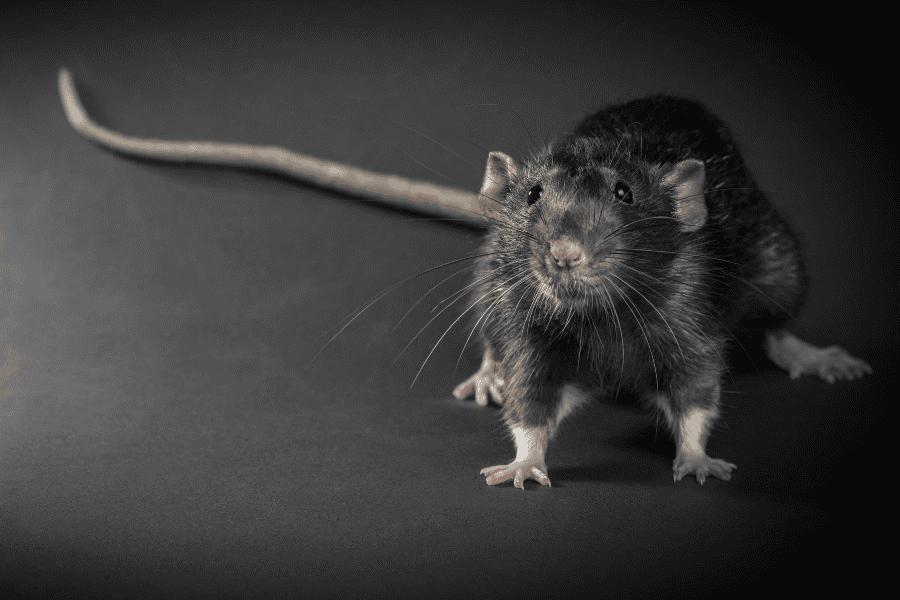
Roof rats, also known as black rats, are a common nuisance in Georgia homes and businesses. These rodents are notorious for invading attics, rooftops, and upper levels of buildings, causing damage and spreading diseases. Identifying a roof rat infestation early is crucial for preventing a growing rat population in your home. In this blog, we’ll discuss how to identify roof rats, where they are commonly found, why they are hazardous, and how to get rid of them. Plus, we’ll provide essential tips on rodent prevention.
Roof rats (Rattus rattus) are smaller and more agile than their relative, the Norway rat. Here are some key features to help you identify them:
Roof rats prefer to nest in high places, making them more likely to infest attics, rafters, and upper levels of homes and buildings. They are excellent climbers and often use tree branches, power lines, and vines to access rooftops. Some common nesting sites include:
Because roof rats are attracted to food sources, they often seek out accessible pet food, bird seed, fruits, and unsecured garbage bins.
Yes, roof rats pose several hazards to humans, pets, and property. Here’s why they should not be ignored:
Eliminating a roof rat infestation requires a combination of trapping, exclusion, and professional rat control services. Here are effective methods:
If the infestation persists, hiring a pest control company is the best solution. Professionals can assess the situation, set up strategic traps, and provide long-term rodent control solutions to keep roof rats out. If you are looking for eco-friendly options, green pest control is an alternative to traditional pest control methods that provide the same effectiveness with environmentally friendly solutions.
Preventing roof rats from invading your home is much easier than eliminating them after an infestation. Here are some tips to keep them away:
If you suspect a roof rat infestation in your Georgia home, it’s important to act fast. These rodents multiply quickly and can cause extensive damage. A professional pest control company can provide expert rodent control services, safely remove the infestation, and implement preventative measures to protect your home.
Don’t wait until the problem worsens—contact a pest control expert today to keep your home rat-free!
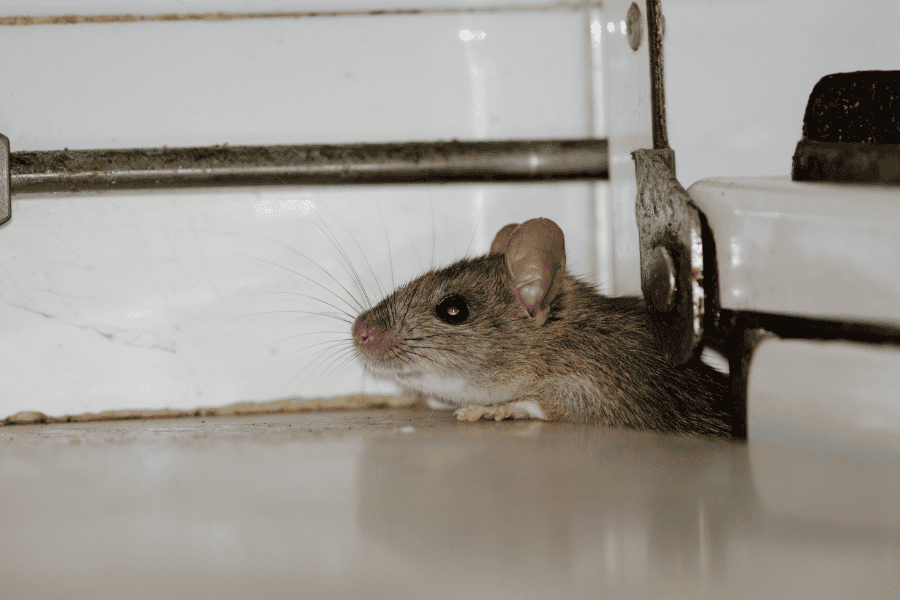
Rodents such as rats and mice are among the most common household pests in Georgia. They are notorious for invading homes, contaminating food, spreading diseases, and causing structural damage. Learning to identify the signs of rodents and taking proactive steps to prevent infestations can help protect your home and family. Below, we outline 12 practical rodent control tips, discuss the types of rodents common in Georgia, and explain why these pests invade homes.
Rodents enter homes searching for three basic needs: food, water, and shelter. Here’s why and how they manage to get inside:
Inspect your home for cracks, holes, and gaps, especially around doors, windows, and the foundation. Use steel wool, caulk, or hardware cloth to seal these openings, as rodents can gnaw through weaker materials.
Store all food, including pet food, in airtight containers. Clean up crumbs and spills promptly, and avoid leaving dirty dishes overnight.
Repair leaky faucets and pipes, and ensure your home’s drainage system works efficiently. Remove standing water both inside and outside your home.
Rodents love cluttered spaces where they can hide and nest. Keep storage areas tidy, dispose of unused items, and organize your garage or attic.
Vacuum floors, wipe down counters, and take out the trash daily. Rodents are less likely to settle in a home that’s free of food residue.
Gaps under doors are a common entry point for rodents. Installing door sweeps can prevent rats and mice from sneaking inside.
Traps are an effective do-it-yourself rodent control method for small infestations. Snap traps, glue traps, and live traps are widely available at hardware stores. Be sure to place traps near walls and areas with visible signs of rodents, such as gnaw marks or droppings.
Natural deterrents like peppermint oil, cayenne pepper, and ultrasonic devices can help repel rodents. However, these methods are often best used alongside more robust solutions.
Trim tree branches that touch your roof, as they serve as highways for roof rats. Remove piles of debris, and store firewood at least 20 feet from your home to eliminate potential nesting sites.
Stay vigilant for signs of rodents, including droppings, chewed wires, nests made of shredded materials, and unusual noises in walls or ceilings. Early detection is key to preventing a full-blown rodent infestation.
If you’re using traps or rodenticides, ensure they’re placed in areas inaccessible to children and pets. Many rodent control products can be hazardous if accidentally ingested.
For severe rodent problems, contacting a professional rodent exterminator or pest control company is the safest and most effective solution. These experts have the tools, experience, and knowledge to eliminate rodents and prevent future infestations. Consider pest control companies who specialize in green pest control methods to not only eliminate your pest issues but do so in a way that is safe for the environment, children, and pets.
Rodents are not just a nuisance; they pose serious health risks. They can spread diseases to humans and pets, including:
These diseases underscore the importance of addressing rodent problems promptly.
If you suspect an infestation, take the following steps immediately:
While do-it-yourself rodent control can be effective for minor infestations, professional pest control services offer significant advantages:
If you’re searching for “rodent control near me” in Georgia, consider reaching out to a trusted pest control company for a consultation.
Preventing a rodent infestation is always easier than eliminating one. Follow these tips, stay vigilant, and take action at the first sign of activity. Rodents may be small, but their ability to contaminate food, spread diseases, and damage property makes them a big threat.
Whether you need assistance with rat control, advice on how to get rid of rodents, or help with ongoing rodent problems, don’t hesitate to contact a professional pest control company. They can provide the expertise and peace of mind you deserve.
If you’re dealing with a rodent issue or want to take preventive measures, call a local pest control company today for a free consultation. Let the professionals handle the problem so you can enjoy a safe, rodent-free home.